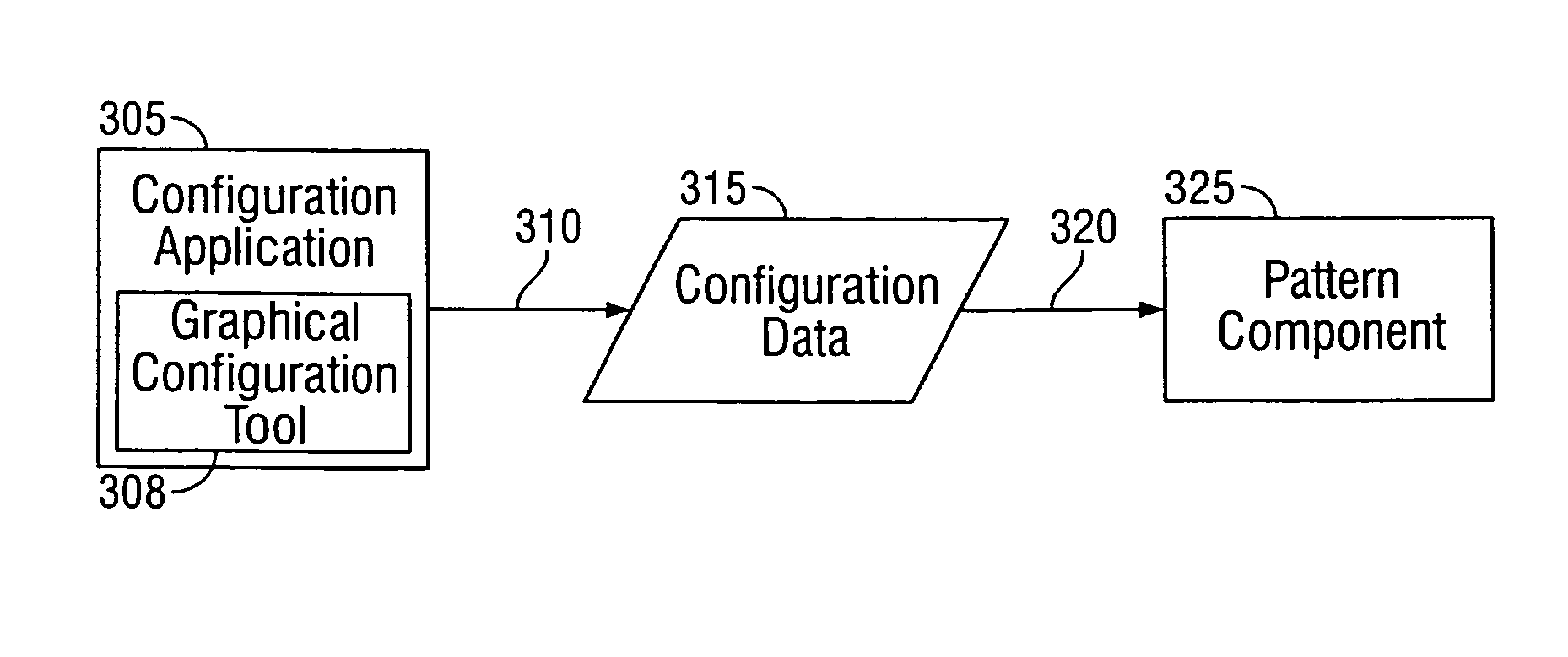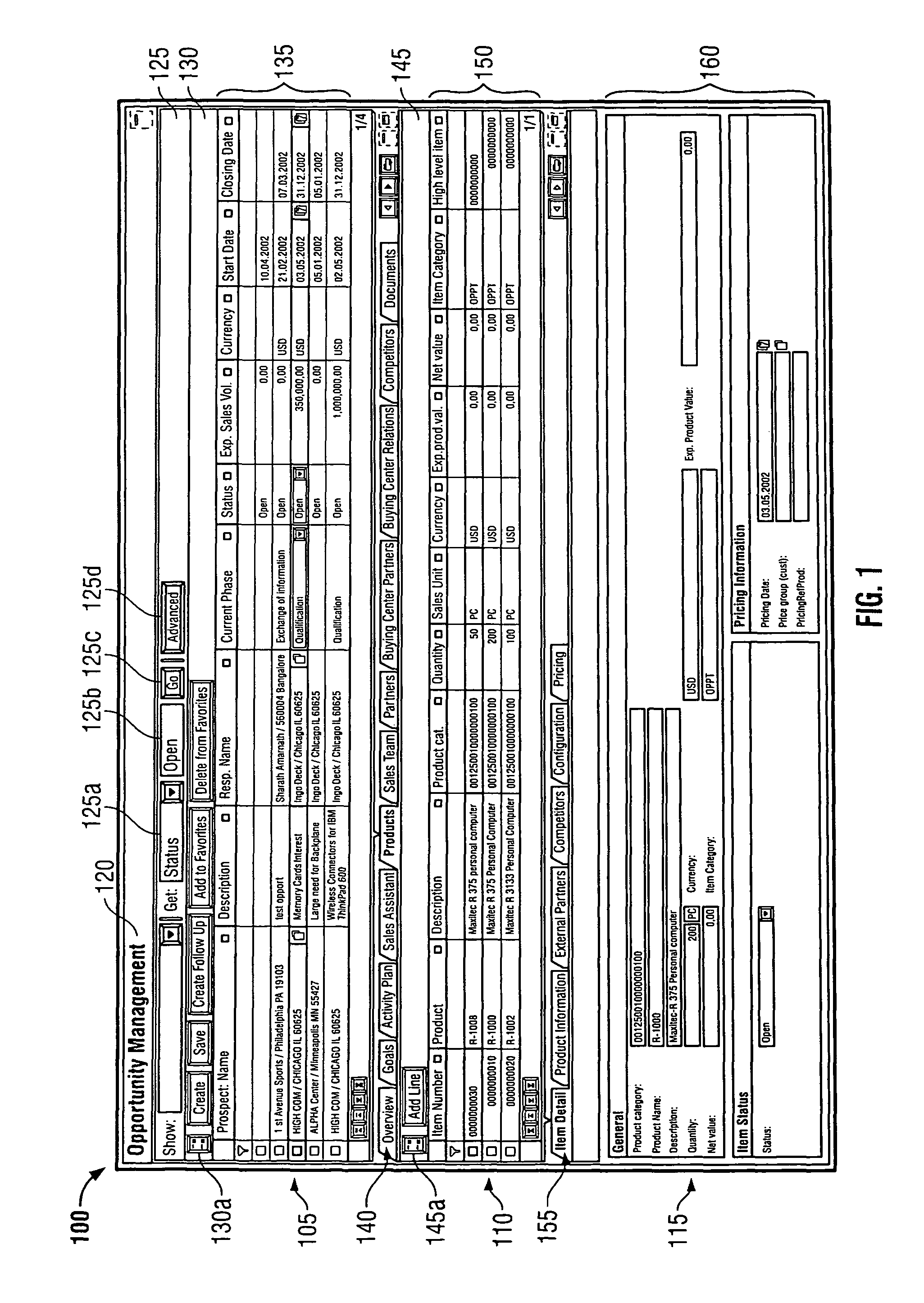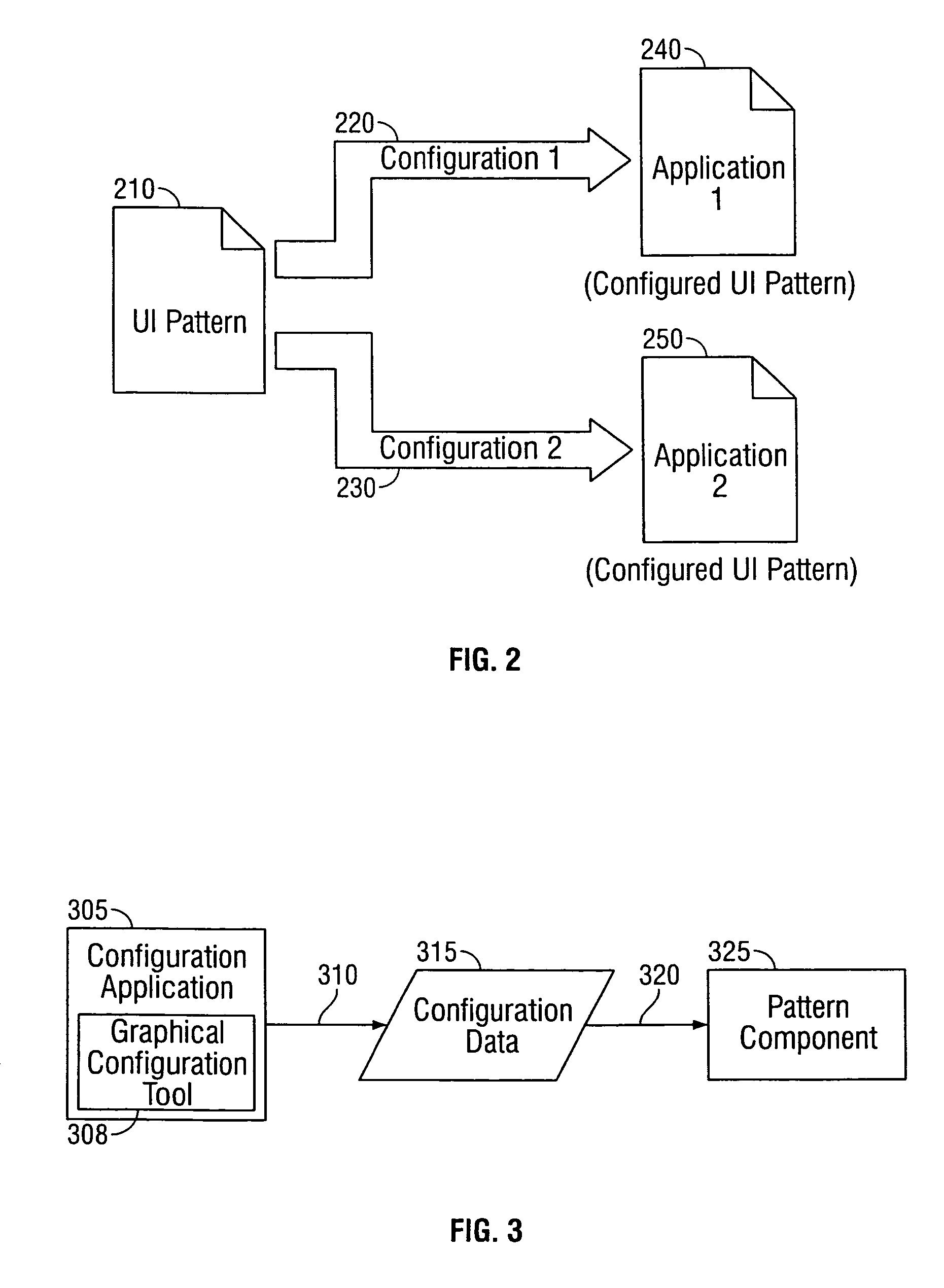Developing applications using configurable patterns
a technology of configurable patterns and development patterns, applied in the direction of program control, visual/graphical programming, instruments, etc., can solve problems such as the process that can take several weeks, and achieve the effect of keeping the complexity of the configuration operation small
- Summary
- Abstract
- Description
- Claims
- Application Information
AI Technical Summary
Benefits of technology
Problems solved by technology
Method used
Image
Examples
example migration
[0236
[0237]FIGS. 24-29 illustrate an example migration using the above-described techniques and visual modeling tools.
[0238]FIG. 24 shows an application 2400 to be migrated. As described above, a developer determines the functionality of the application to be migrated and then selects one or more patterns based on this determination. In this case, the application is used to search for products offered by a particular supplier (identified in a supplier input form 2410). The results of a product search is shown in a results window 2420.
[0239]As shown in FIG. 25, the developer selects an OIP pattern 2500 using a graphical configuration tool. The developer will then configure the OIP pattern 2500 so that it provides the same or similar functionality as the application 2400. More specifically, the OIP pattern 2500 will be configured to execute a similar query into the application database, and to display similar results retrieved from the application database.
[0240]As shown in FIG. 26, t...
PUM
 Login to View More
Login to View More Abstract
Description
Claims
Application Information
 Login to View More
Login to View More - R&D
- Intellectual Property
- Life Sciences
- Materials
- Tech Scout
- Unparalleled Data Quality
- Higher Quality Content
- 60% Fewer Hallucinations
Browse by: Latest US Patents, China's latest patents, Technical Efficacy Thesaurus, Application Domain, Technology Topic, Popular Technical Reports.
© 2025 PatSnap. All rights reserved.Legal|Privacy policy|Modern Slavery Act Transparency Statement|Sitemap|About US| Contact US: help@patsnap.com



